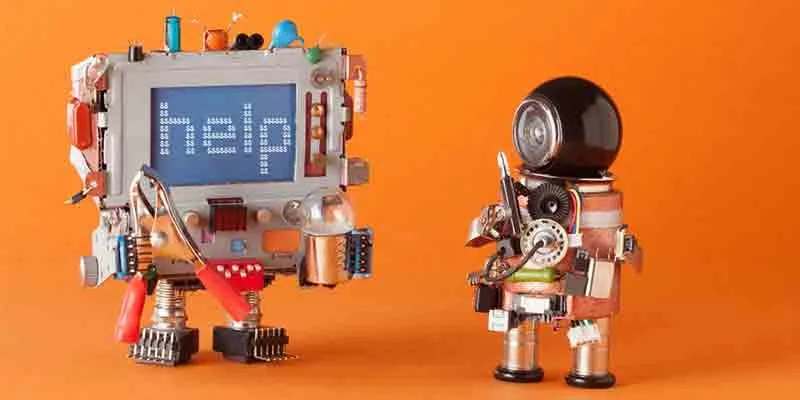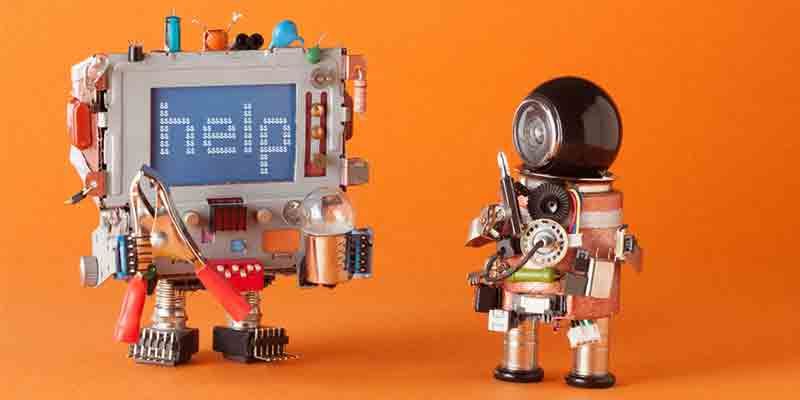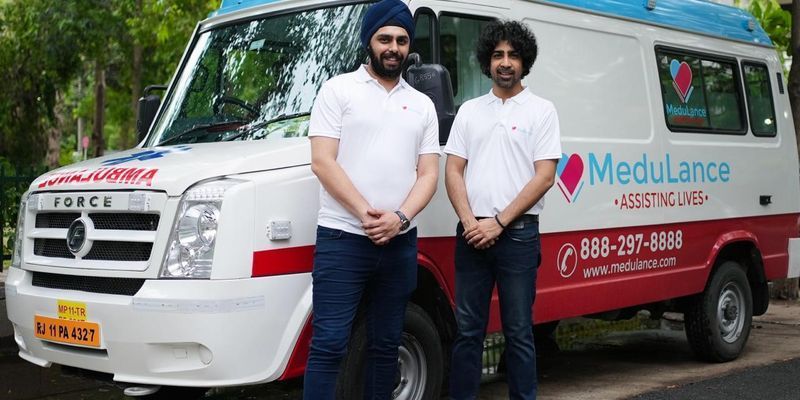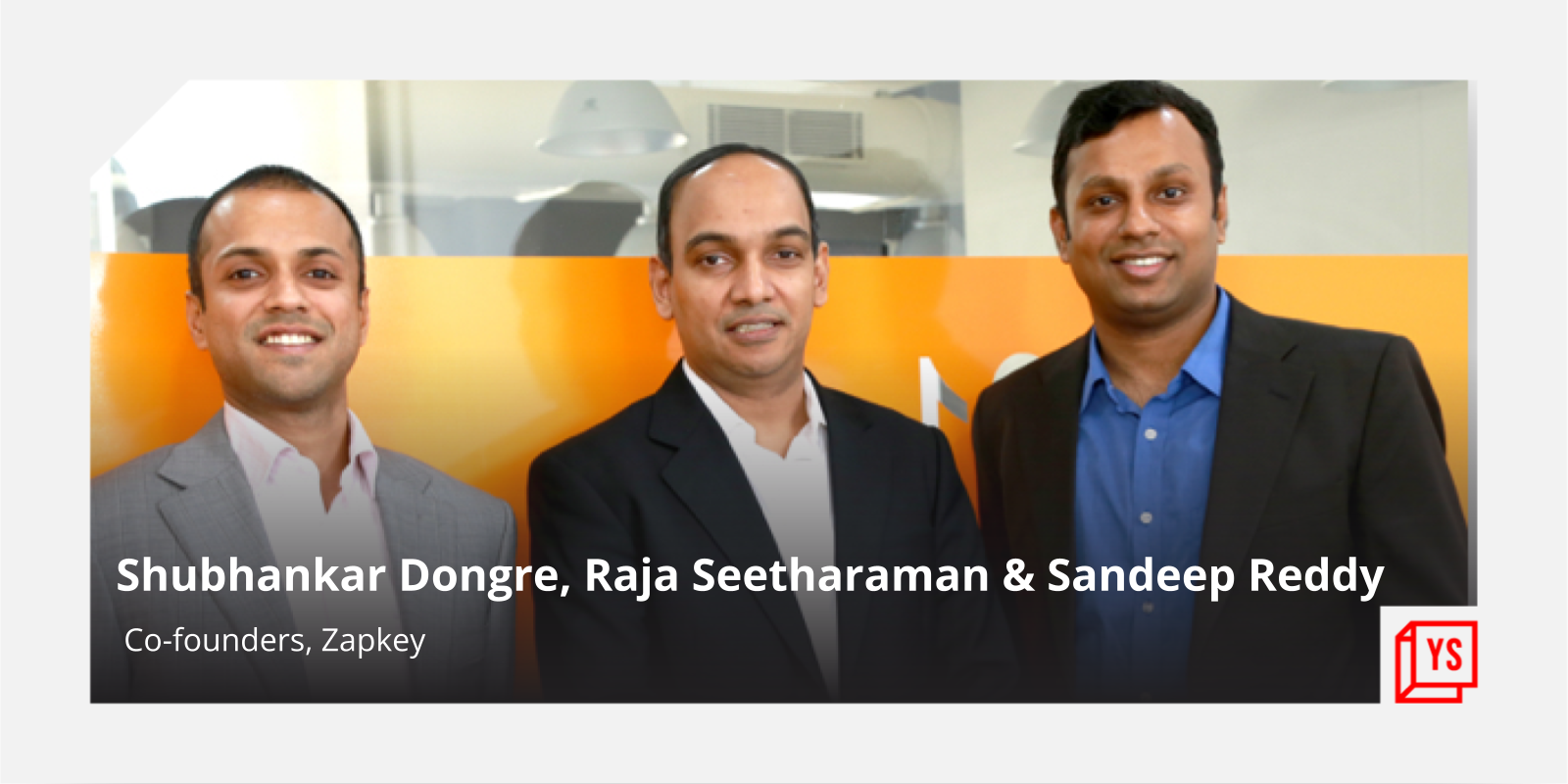Why these 5 industries will soon pick virtual assistants instead of hiring you
India may have been slow to catch up with the world when it comes to AI services, but the role of VPA technology is going to be significant with even Future Group betting big on digital retail 3.0.
Life seems to be moving in the direction of the cloud. Until now, the Gods in the clouds guided us; now, the cloud and data, which know everything about us, are our guiding light.
Microsoft Azure, Amazon Web Services, and the Google Cloud, packed with data on every human interaction, are the new Gods these days.
No wonder services are being built on top of their Artificial Intelligence (AI) platforms. From shopping to dating, from interactions with friends to business conversations, everything is culminating into an era where algorithms will make suggestions to the individual and the CEO about building a personality and a company.

Kishore Biyani, the Chairman of Future Group, announced a new strategy where there will be digital integration with 350 stores in grocery. The group plans to eventually roll out virtual personal assistant tech in 10,000 stores in five years.
“We will use everything from chat apps to machine learning for a complete digital retail experience,” he says. This $4.4 billion dollar company isn’t the only one betting on virtual private assistant (VPA) technology; there is a host of others too. The companies that will build for large enterprises will be IT Services companies like Infosys, Mindtree and Wipro. But, these companies have large revenues from the US and will focus on that market only.
With Kishore taking this bet, the opportunity to build such services for the Indian market is wide open to startups. However, there aren’t many stellar examples of VPA implementations from startups with large companies. Everyone claims to build a chatbot, but, a chatbot is not a VPA. Companies using basic conversational assistants include Yellow Messenger, Marvin.AI, Morph.AI and Avysh.com.
Naganand Doraswamy, Founder of IdeaSpring Capital, says, “Today, literally every startup and mid-sized company claims to be an AI startup and gives the chatbot argument. But they have no clue about Deep Learning, Machine Learning and AI. They need to figure out where they stand in terms of tech and then work on a business model.”
He adds that today, large product companies like Amazon and Apple, which understand how consumers and technology work, are game for VPAs.
These virtual private assistants are not robots like the ones in Asimov's fictional Robot Series; they are just a stepping stone to a dynamic machine-and-human interaction.
How does VPA work?
The VPA is an algorithm that tracks data and figures out your likes and dislikes, and then answers questions on a chat or voice platform. It is able to make suggestions based on historical data. Engineers today are using the power of the cloud (compute and storage), mobile apps, interactive web and search modules to target customers on the go.
Atul Jalan, Founder of Manthan, says: “In the future, thanks to digital data, software will know more about the individual and will predict possibilities that are accurate.” He adds that data is the “future of the world” with everyone openly sharing data with Google, Facebook and all the apps that are installed on their phones.
All engineering students must prepare for this AI revolution by understanding data coming from corporations. For that, however, there needs to be a massive overhaul of industry and academia engagement. Karnataka has taken a step ahead in setting up a centre of excellence for AI, but there needs to a unified effort across the country to study the impact of these AI-based Algorithms.
With these clouds, technology companies can now help enterprises use data to tailor-make campaigns for customers. Gone will be the days when data was in silos and the customer was treated as part of a whole. Today, the customers can be made to feel special although they will - very subtly - still remain part of a whole as corporations will focus on new tailor-made campaigns to increase top lines and bottom lines. Such campaigns will be triggered by VPAs, AI-powered software, which plugs into the CRM in the BFSI and retail scenarios, and Hospital Information Systems. VPAs are being piloted in several industries, including logistics, brick-and-mortar retail, healthcare, banks and manufacturing.
We list down the five industries that will use and be augmented by the presence of VPAs in the near future:
Retail: In Bengaluru, Mindtree and Manthan are building their versions of VPA for retailers to help customers make informed shopping decisions. The objective is to inform the individual about the product and influence him/her to buy it. Say, an individual likes a “crunchy” milkshake, the VPA engine will figure out what could be the possible purchase in the store. It may suggest “cookies” or even a “freshly baked pizza at the gourmet bakery”. The only teams that have to be dynamic are store associates and marketing teams serving these real-time offers. All the customer has to do is walk into the store, turn on the retailer’s app and use the voice or text-based assistant. These are high level chatbots that have been built using natural language processing techniques.
N S Parthasarathy, Executive Vice Chairman of Mindtree, says: “Soon, the customers will want technology to provide outcomes and we have to build these AI-based assistants.”
These virtual assistants help retailers improve loyalty with tailor-made campaigns. They also help store managers make suggestions to shoppers at the aisle.
Manufacturing: VPAs are part of connected factories in Germany where every machine on the shop floor becomes a dashboard on an app. The VPA tracks the performance of all the machines, predicts failures and prescribes the type of maintenance required. The factory manager asks it questions or types out queries to figure out the tasks for each machine and how to rest them when the production cycle changes based on market demand. Recently, TCS tied up with Rolls Royce to build an IoT module with AI, Deep Learning and Machine Learning. In this setting, VPAs will be provided to plant managers and clients (businesses that own planes that run on Rolls-Royce engines) to figure out areas where engine parts may be worn out and how to fix them.
Ben Story, Strategic Marketing Director at Rolls Royce, says, “This reduces the time to market and brings down the cost.”
The company, along with TCS, will also work with startups and other firms to figure out Machine Learning and Artificial Intelligence synergies in making real-time data for end-users of Rolls Royce engines.
“We are using data to discover component life time rate based on usage and to reduce the cost of ownership for clients,” Ben says.
The same applications can work in the automobile industry. This technology will be part of a $7 billion technology upgrade opportunity in Indian manufacturing by 2020, industry experts say.
Logistics: This industry, which is $200 billion in market size, is low on tech and awaiting disruption. Big investments are being made by the likes of Amazon and Flipkart in warehouses. The easiest application that can be provided to truckers is a VPA to understand contracts, find business and also figure out delivery routes.
LOBB, a real-time delivery truck discovery company, says truckers need technologies that can help them understand delivery schedule and also speak to a bot to understand truck maintenance.
Jayaram Raju, Co-founder of LOBB, says: “AI is going to disrupt trucking with predictive maintenance and will also help truckers manage the client’s cargo better with virtual assistants.”
In warehouses, managers can get schedules explained to them by the VPA. Movement of bins and crates can be predicted based on the scheduled ship-ins and ship-outs.
Healthcare: VPAs can be used by doctors to dynamically understand patient history while patients can use them to better engage with hospitals and insurance companies. Say, for example, a patient wants to consult a doctor; the entire appointment is made through a VPA. But the software will pull all your insurance details and plug it to the insurance company and the doctor. The doctor can use the VPA to get dashboards on his treatments and appointments. The VPA will tell the doctor that the next patients have put down on the app that they are suffering from acute indigestion or burns. The VPA will create a dashboard of incidents and remedies/therapies suggested over a period of time. This information can be plugged to the hospital ERP to manage the time of its surgeons, specialists and hospital beds better.
Professor S Sadagopan, Director of IIIT-B, says, “The future is going conversational with real-time data and this benefits healthcare. AI can decide whether the case needs a senior surgeon at the operation table; in 95 percent, of the cases you don’t need a senior surgeon’s presence.”
Banks: There is a reason why VPAs are needed in banks, which are behemoths with large staff strength and massive paperwork and duplication of work.
Badrinath Rao, CEO of Cattleya Technosys, says, “Banks are reducing the size of their branches and opening several virtual bank networks. One can open an account with a virtual agent and you really don’t need people to man the centre.” Cattleya is an IoT company working on automating processes in banks.
SBI, for example, spends Rs 800 crore every year to just manage JanDan accounts. Imagine VPAs cutting out the paperwork and making bank staff efficient. But for this to happen, banks must integrate their consumer-facing technology on to this form of tech. SBI is investing in several new technologies to make banking go digital. The challenge here is of regulations. But what if a conversational app helped a person open an account or buy an insurance policy from the bank channel? This would be faster, could be done out of any region, and the customer would not need to visit the branch.
According to Cognizant, the global market for smart virtual personal assistants (SVPAs), or chat bots, is growing exponentially. What was valued at $113 million just two years ago, according to Transparency Market Research, is expected to reach nearly a billion by 2024. Furthermore, adoption of popular virtual assistants such as Apple Siri, Amazon Alexa, Google Home and Microsoft Cortana is rapidly approaching 100 million combined users. These offerings, however, have predominantly appeared in the consumer space for straightforward activities such as booking movie tickets, identifying restaurants, providing sports and weather updates, creating event reminders, texting and calling friends, or playing music.
In the next step, enterprises come into the picture. SVPAs could schedule meetings, follow up on work-in-progress activities, and carry out daily tasks such as filing timesheets, providing employee instruction, and more. This could lead to significant enhancements to employee collaboration, satisfaction, and ultimately significant cost savings for organisations. In Cognizant’s view, SVPAs are an enterprise disruption waiting to happen.









![[Tech50] How aviation tech startup Defy Aerospace is leveraging drones to bring emergency healthcare to all Indians](https://images.yourstory.com/cs/2/0e302530227f11ec9e19b7c38d296967/DefyAerospace-Samriddhi-1639469629129.png)

